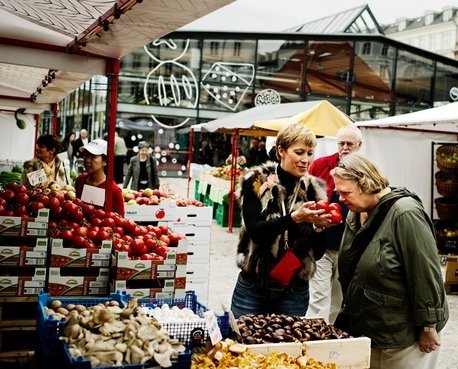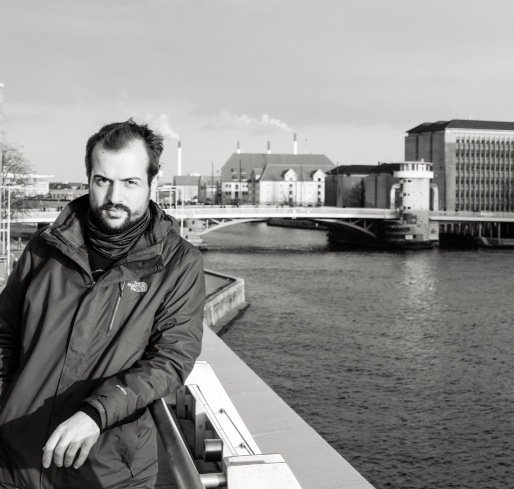In November The Economist amplified René Redzepi’s latest statement, his appeal to give as much relevance to a carrot as to a steak because, this is the forecast and certainty of the Danish chef, in 2014 vegetarian cuisine will triumph. Matteo Aloe, instead, is a restaurateur from Bologna: Berberè is his first restaurant and he wrote us a long analysis that we are happy to publish, for more than a reason.
I’d like to comment on the post on Noma. I am in Copenhagen where I’m about to start an internship that I hope to complete on April 5th. Renè Redzepi’s statement is more than correct, I’m happy of this opinion of his since he has such a strong influence on the world. I’m convinced, however, that Pietro Leemann, patron of Joia in Milan, deserves the merit of having done the same many years ago, when very few people were speaking about vegetarian cuisine. Indeed, he is the one who uses carrots and turnips as if they were very precious meat cuts.

Torvehallerne, a bio fruit market and much more in the middle of Copenhagen (photo by Ny Times)
Since the start, at
Berberè, over half of the pizzas have been vegetarian. However, we don’t care of highlighting this, so meat lovers can choose the vegetarian pizzas and enjoy them without paying much attention to it, without any labelling that could be considered sad or negative. Unfortunately, high quality fruit and vegetables suppliers are the hardest to find, they’re the most unlikely to maintain a constant quality and supply. We make a big effort. I’ve found an excellent butcher, an excellently supplier of pastry making products but no excellent fruit and vegetable supplier.
A new approach by the public is also necessary: clients cannot keep on asking for a “some vegetables”, without any details, when there are 13 vegetarian dishes in the menu, out of 20. Vegetables, when mixed together randomly and without any sense, are not good, they are not respected. It’s like making a sandwich filled with 4-5 kinds of salami. You need to give the right (economic and sensorial) value to the carrot as much as you would with a fillet. Will we ever succeed?
As for me, as a restaurateur, I’m committed to using less and less meat and fish in the menu, as for you, you should continue to speak of vegetables and farmers! As Oscar Farinetti said, during the presentation of Guida di Identità Golose, 4 good people working in our government would suffice, among whom, the minister for agriculture. In Spain, pig are bred in the wild (in Italy this is not allowed) and people come from all around the world to taste Pata Negra. In France, producers of raw-milk cheese did not adjust to European regulations, in order to defend their traditions... how about us? As usual, we get European funds and now have our traditions erased and it’s increasingly difficult to find excellent products. And nobody in power has ever defended farmers and breeders.

Aloe, on stage at Noma until April 5th
Even in Scandinavian countries they’ve managed to highlight the very few products they have all around the world. And now they’re teach how to cook to us too. As Italians, perhaps this is the only subject in which, until a few years ago, we had nothing to learn. As soon as I arrived in Denmark, I visited the market in Copenhagen (this town is full of bicycles, despite the cold, and it has the highest consumption of organic produce in Europe) and I found organic broccoli and many other beautiful organic vegetables coming from Italy. In my new restaurant in Bologna,
AlceNeroBerberè, where I’m committed to use 100% organic produce, they haven’t been supplying us for almost 3 weeks. This is discomforting.
Do speak about this, direct the attention to this world, that of high quality, organic agriculture, which could give Italy all it deserves. I’m sorry for this outburst but now that I’m 27 I start to think that it’s no longer up to my parents to solve all problems.